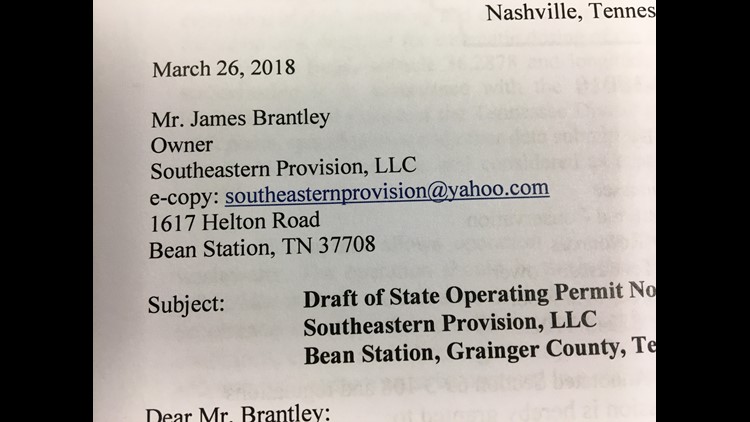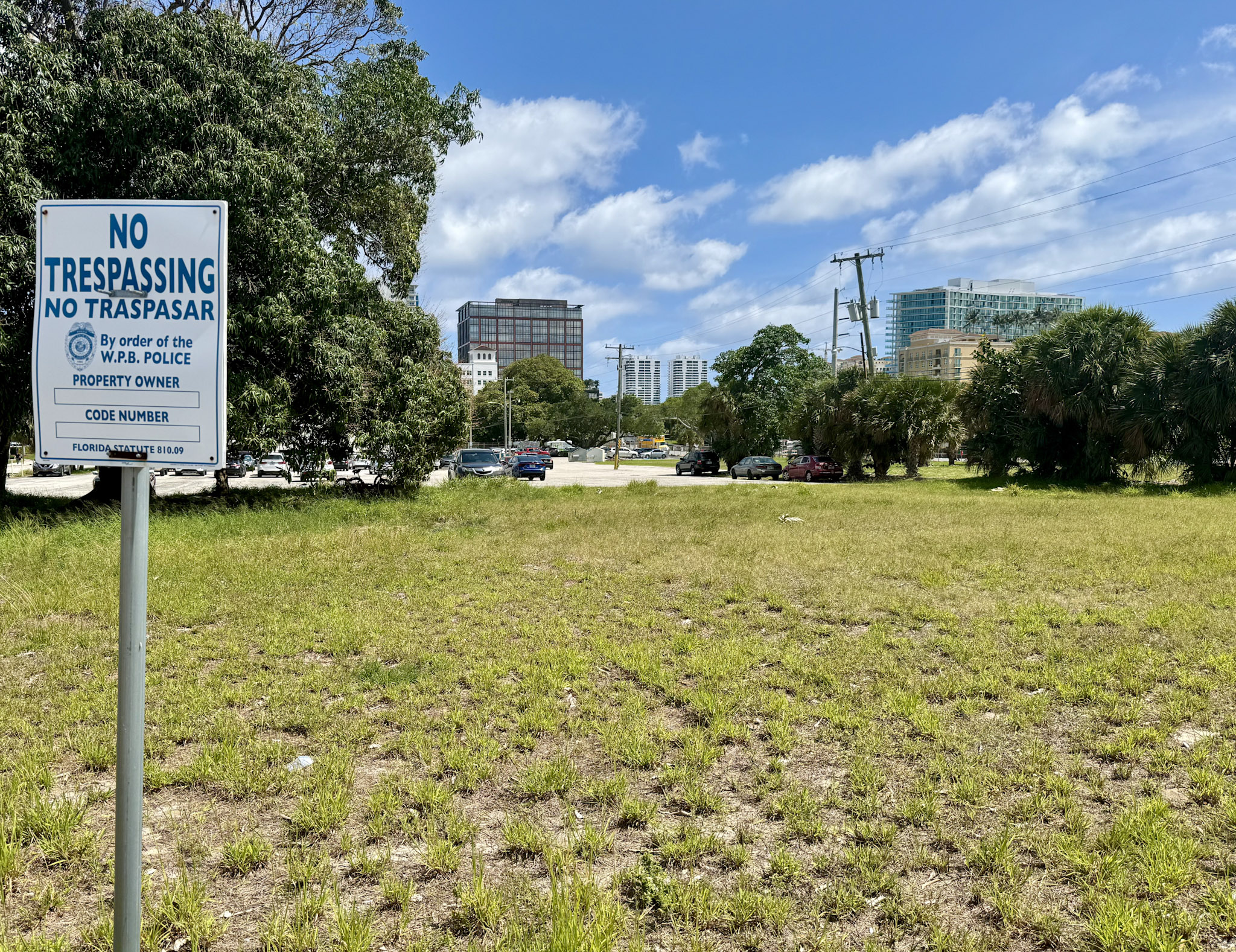Report on Onsite Environmental’s Violation of the Clean Water Act and Implications for Sustainable Development Goals
Incident Summary and Legal Findings
Onsite Environmental, a Tennessee-based company previously operating as Allwaste Onsite, has formally pleaded guilty to violations of the federal Clean Water Act. The U.S. Department of Justice confirmed that the company’s Nashville facility intentionally bypassed mandatory waste treatment protocols. This action resulted in the direct discharge of untreated or partially treated non-hazardous industrial liquid waste into the public sewer system, a significant breach of its operating permit issued by Nashville and Davidson County.
The violations were documented during two specific periods:
- December 5 to December 22, 2022
- January 4 to January 17, 2023
The guilty plea was accepted by U.S. District Judge Aleta A. Trauger for the Middle District of Tennessee, with sentencing scheduled for December 15.
Penalties and Mandated Corrective Measures
As a result of the conviction, the court has imposed the following sentences on Onsite Environmental:
- A financial penalty of $512,000.
- A probationary period of three years.
- A mandatory requirement to implement and adhere to a comprehensive and detailed facility operating plan to prevent future violations.
Contravention of Key Sustainable Development Goals (SDGs)
The actions of Onsite Environmental directly undermine several United Nations Sustainable Development Goals (SDGs), which form a global blueprint for a sustainable future. The violations highlight a failure in corporate responsibility and environmental stewardship.
- SDG 6: Clean Water and Sanitation: The company’s primary offense was the deliberate contamination of a public water system. This directly contravenes Target 6.3, which aims to “improve water quality by reducing pollution, eliminating dumping and minimizing release of hazardous chemicals and materials.” By discharging untreated industrial waste, the company increased the pollutant load on municipal water treatment infrastructure and jeopardized the safety of local water resources.
- SDG 12: Responsible Consumption and Production: This case represents a significant failure to achieve Target 12.4, which calls for the “environmentally sound management of chemicals and all wastes throughout their life cycle.” Onsite Environmental’s decision to skip treatment steps demonstrates a disregard for responsible production patterns and sustainable waste management practices.
- SDG 11: Sustainable Cities and Communities: The illegal discharge impacts the environmental health of Nashville. This action is contrary to Target 11.6, which seeks to “reduce the adverse per capita environmental impact of cities, including by paying special attention to… municipal and other waste management.” Proper industrial waste management is critical for maintaining the sustainability and resilience of urban environments.
Upholding Environmental Justice and Strong Institutions (SDG 16)
While the company’s actions violated key environmental SDGs, the legal response from the Department of Justice and the U.S. District Court reinforces SDG 16: Peace, Justice and Strong Institutions. The successful prosecution and sentencing demonstrate the effectiveness of regulatory bodies in enforcing environmental laws. Holding a corporate entity accountable through legal and financial penalties is a crucial function of strong institutions, ensuring that environmental regulations are upheld and serving as a deterrent against future violations, thereby protecting public resources and advancing the broader sustainable development agenda.
1. Which SDGs are addressed or connected to the issues highlighted in the article?
The article discusses issues related to several Sustainable Development Goals (SDGs) due to the illegal dumping of untreated industrial waste into a public sewer system. The following SDGs are addressed:
- SDG 6: Clean Water and Sanitation: This is the most directly relevant SDG, as the core issue is the contamination of water resources by releasing untreated industrial waste.
- SDG 11: Sustainable Cities and Communities: The incident occurred within a city (Nashville) and involves the failure of urban industrial waste management, affecting the city’s environmental quality.
- SDG 12: Responsible Consumption and Production: The company’s actions demonstrate irresponsible corporate behavior regarding waste management, which is a key focus of this goal.
- SDG 16: Peace, Justice and Strong Institutions: The article highlights the role of legal and governmental institutions (Department of Justice, U.S. District Judge) in enforcing environmental laws like the Clean Water Act and holding violators accountable.
2. What specific targets under those SDGs can be identified based on the article’s content?
Based on the specific violations and actions described, the following targets are identifiable:
-
SDG 6: Clean Water and Sanitation
- Target 6.3: “By 2030, improve water quality by reducing pollution, eliminating dumping and minimizing release of hazardous chemicals and materials, halving the proportion of untreated wastewater…”
Explanation: The article explicitly states that Onsite Environmental released “untreated or partially treated waste directly into the sewer system.” This action directly contravenes the goal of reducing pollution and eliminating the dumping of untreated wastewater.
- Target 6.3: “By 2030, improve water quality by reducing pollution, eliminating dumping and minimizing release of hazardous chemicals and materials, halving the proportion of untreated wastewater…”
-
SDG 11: Sustainable Cities and Communities
- Target 11.6: “By 2030, reduce the adverse per capita environmental impact of cities, including by paying special attention to air quality and municipal and other waste management.”
Explanation: The company’s facility is located in Nashville, and its failure to properly manage its “liquid non-hazardous industrial waste” contributes to the adverse environmental impact of the city. The case highlights a breakdown in the city’s industrial waste management system.
- Target 11.6: “By 2030, reduce the adverse per capita environmental impact of cities, including by paying special attention to air quality and municipal and other waste management.”
-
SDG 12: Responsible Consumption and Production
- Target 12.4: “By 2030, achieve the environmentally sound management of chemicals and all wastes throughout their life cycle… and significantly reduce their release to air, water and soil…”
Explanation: The company was required by its permit to “remove pollutants before releasing any waste into the public sewer.” By “knowingly [skipping] treatment,” the company failed to achieve the environmentally sound management of its waste, leading to its release into the water system.
- Target 12.4: “By 2030, achieve the environmentally sound management of chemicals and all wastes throughout their life cycle… and significantly reduce their release to air, water and soil…”
-
SDG 16: Peace, Justice and Strong Institutions
- Target 16.6: “Develop effective, accountable and transparent institutions at all levels.”
Explanation: The article details the response of legal institutions to the violation. The investigation by authorities, the involvement of the “Department of Justice,” the guilty plea in front of a “U.S. District Judge,” and the subsequent fine and probation sentence all demonstrate the functioning of an accountable institution enforcing national laws (the Clean Water Act).
- Target 16.6: “Develop effective, accountable and transparent institutions at all levels.”
3. Are there any indicators mentioned or implied in the article that can be used to measure progress towards the identified targets?
The article provides information that serves as direct or implied indicators for measuring progress (or lack thereof) toward the identified targets:
-
For Target 6.3:
- Implied Indicator (related to 6.3.1 – Proportion of wastewater safely treated): The article’s central point that the company released “untreated or partially treated waste” serves as a direct, albeit qualitative, indicator of failure to treat industrial wastewater. The violation of the permit, which required treatment, is a clear measure of non-compliance.
-
For Target 11.6:
- Implied Indicator (related to waste management): The incident itself—an industrial facility improperly disposing of waste within city limits—is an indicator of challenges in urban waste management. The legal case serves as a data point for tracking environmental violations within the city of Nashville.
-
For Target 12.4:
- Implied Indicator (related to 12.4.1 – Compliance with waste agreements): The violation of the “Clean Water Act” and the local permit is a clear indicator of non-compliance with national and local frameworks for the sound management of waste. The legal proceedings and fine are measures of enforcement against such non-compliance.
-
For Target 16.6:
- Implied Indicator (related to institutional accountability): The article provides several indicators of institutional effectiveness: the company being charged, pleading guilty, being fined “$512,000,” and being sentenced to “three years of probation.” These actions are concrete measures of an institution holding a corporate entity accountable for breaking the law.
4. Create a table with three columns titled ‘SDGs, Targets and Indicators” to present the findings from analyzing the article. In this table, list the Sustainable Development Goals (SDGs), their corresponding targets, and the specific indicators identified in the article.
| SDGs | Targets | Indicators (Mentioned or Implied in the Article) |
|---|---|---|
| SDG 6: Clean Water and Sanitation | Target 6.3: Improve water quality by reducing pollution and eliminating the dumping of untreated wastewater. | The release of “untreated or partially treated waste directly into the sewer system” by the company. |
| SDG 11: Sustainable Cities and Communities | Target 11.6: Reduce the adverse per capita environmental impact of cities, paying special attention to waste management. | The incident of improper industrial waste management within the city of Nashville. |
| SDG 12: Responsible Consumption and Production | Target 12.4: Achieve the environmentally sound management of wastes and reduce their release to water. | The company’s violation of its permit, which required it to “remove pollutants before releasing any waste.” |
| SDG 16: Peace, Justice and Strong Institutions | Target 16.6: Develop effective, accountable, and transparent institutions. | The enforcement action by the Department of Justice, the guilty plea, the $512,000 fine, and the three-year probation sentence. |
Source: wbir.com







